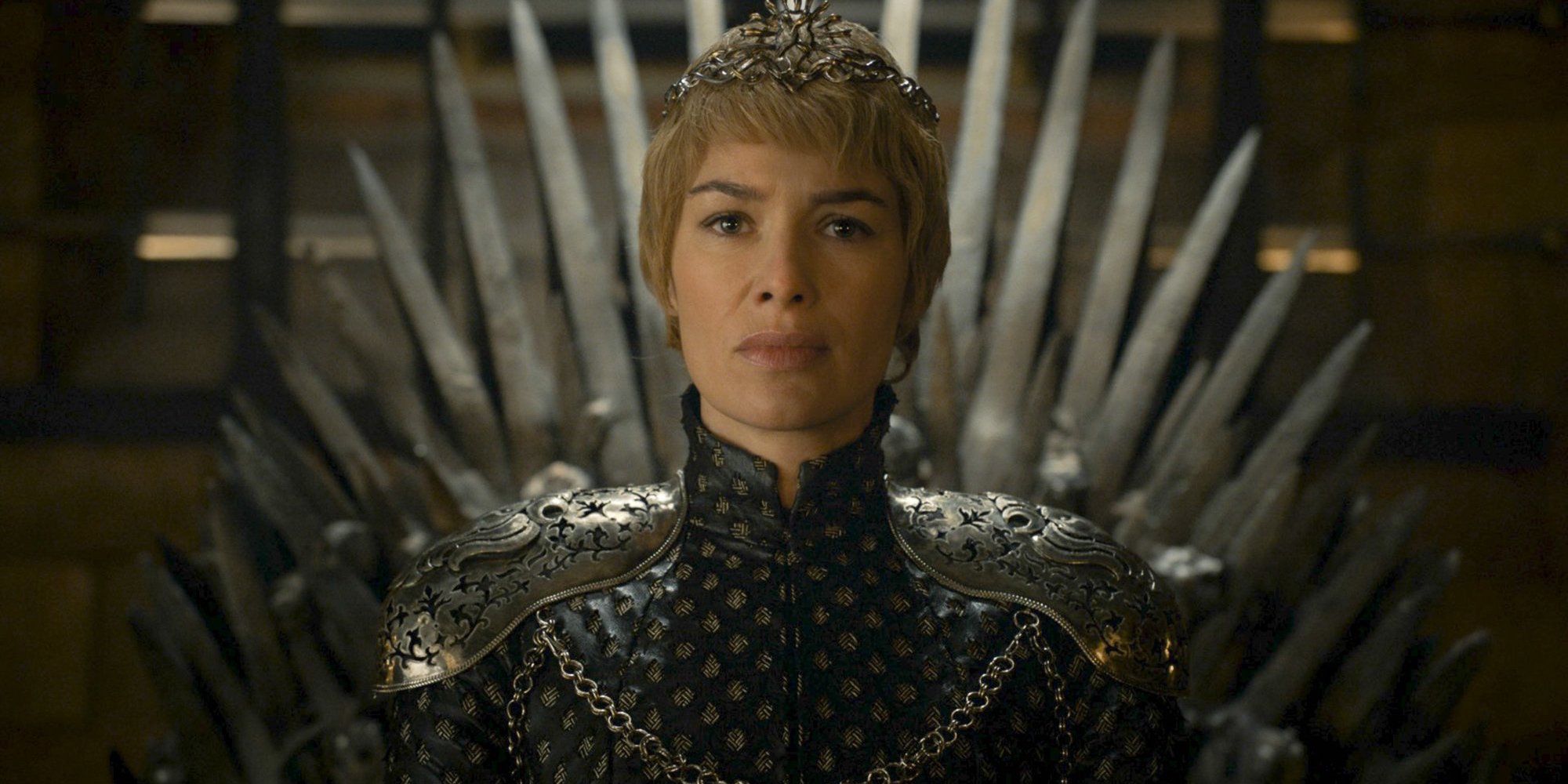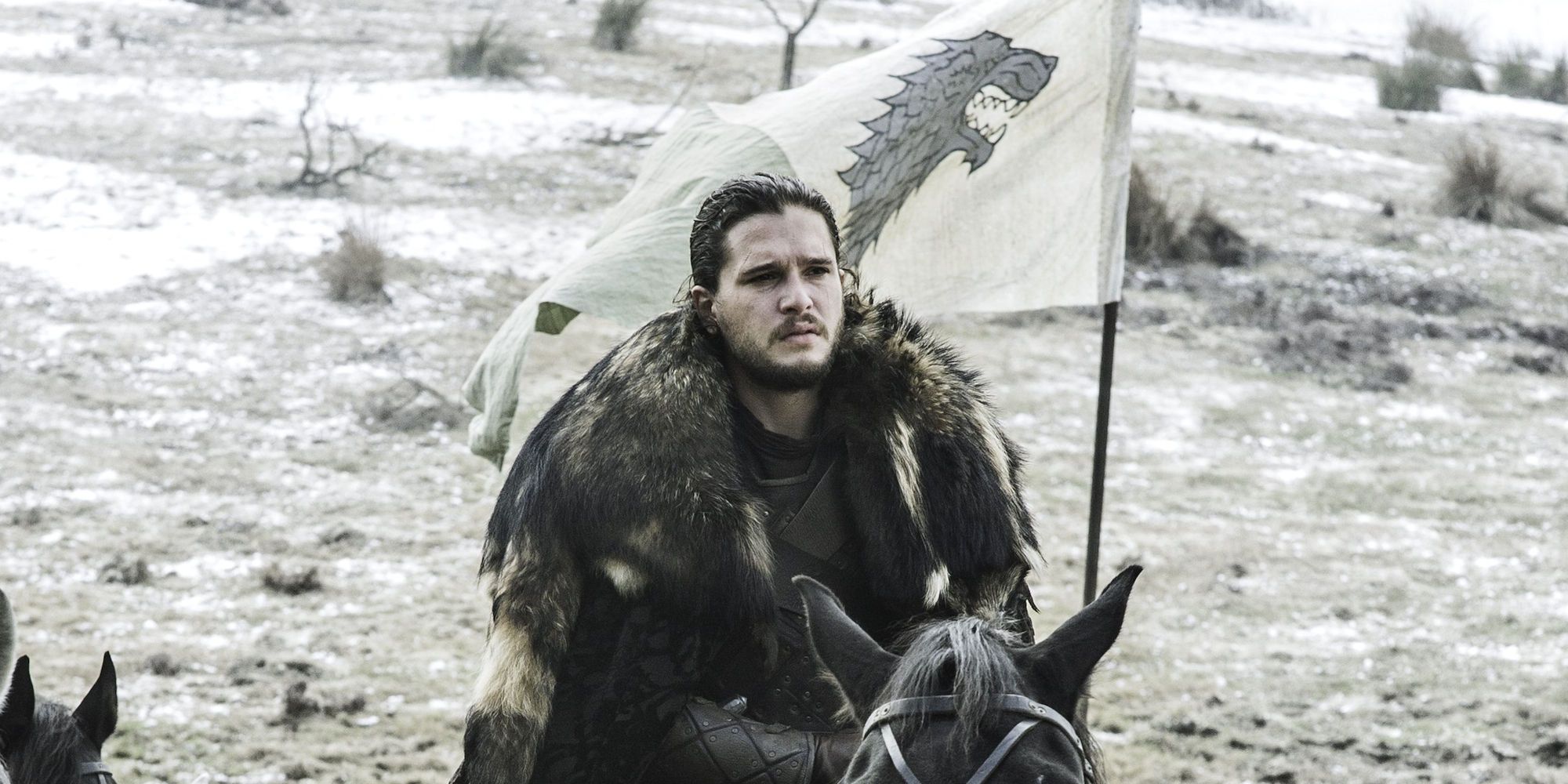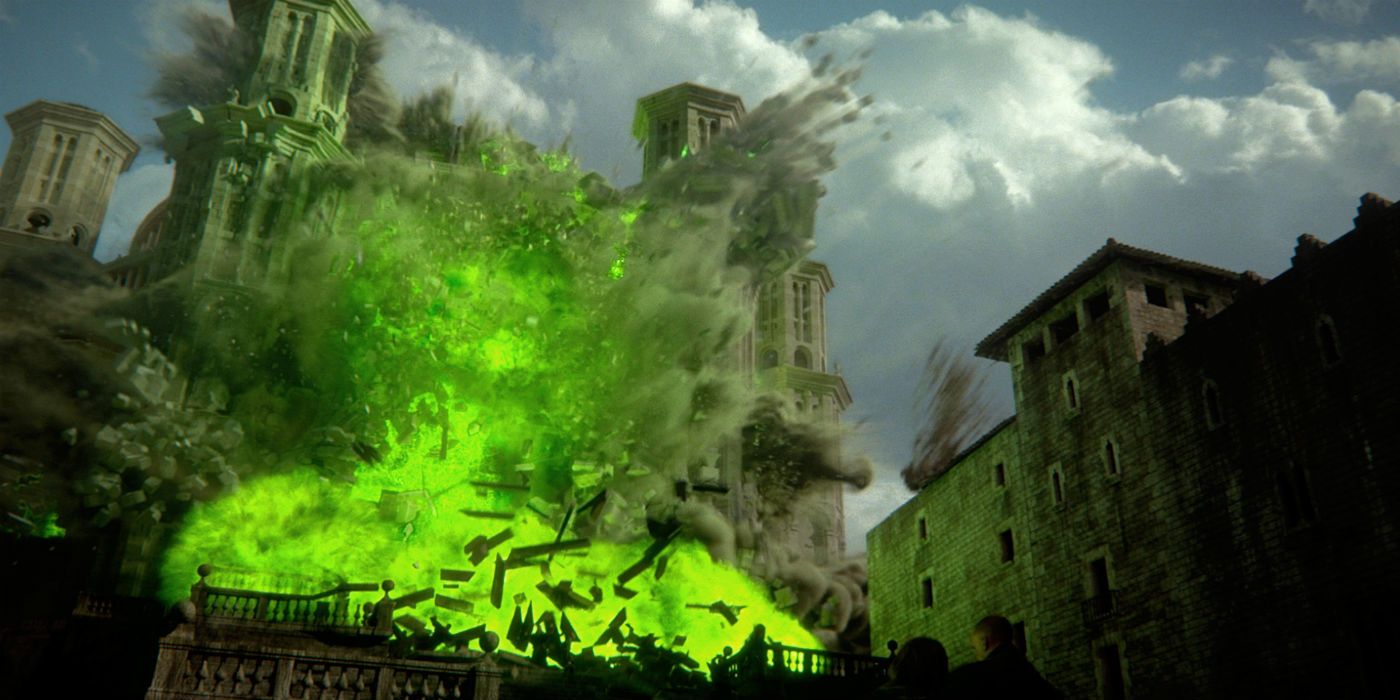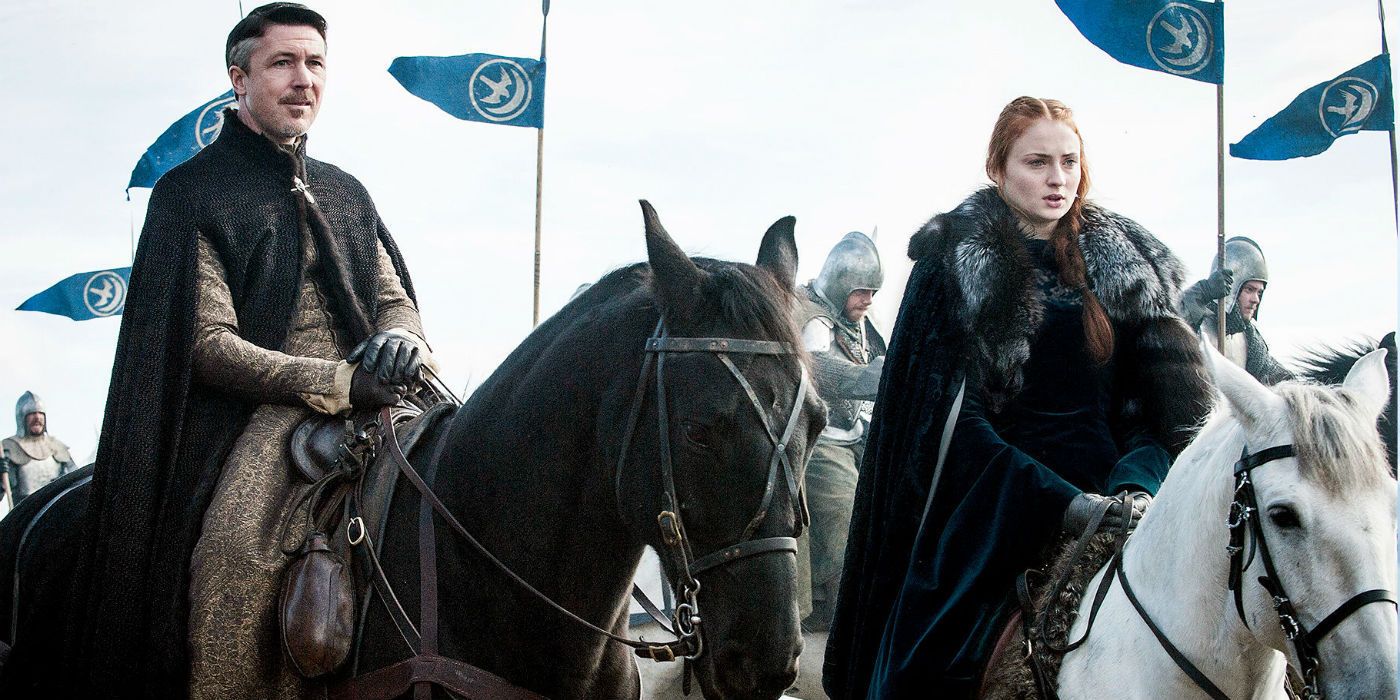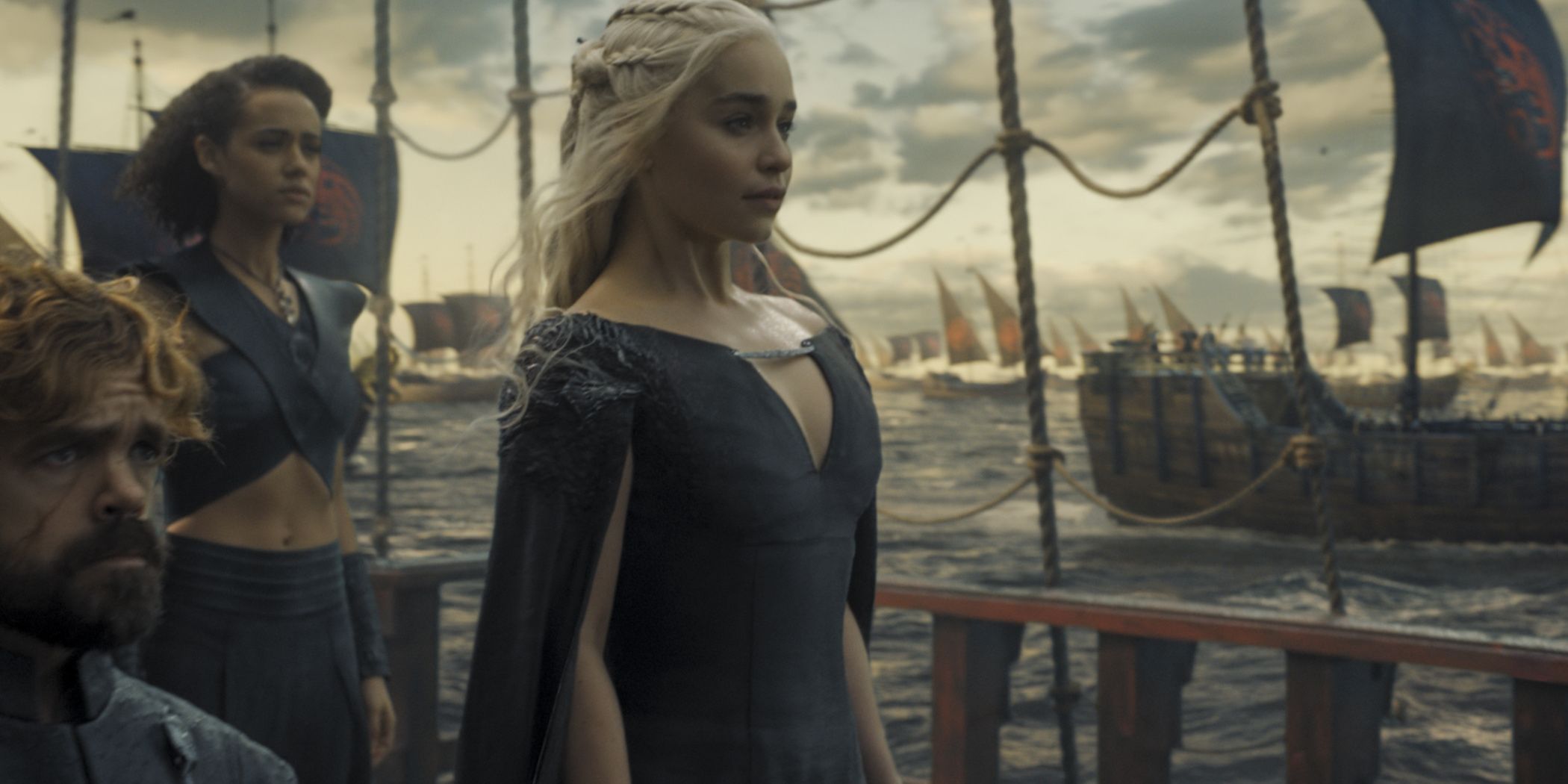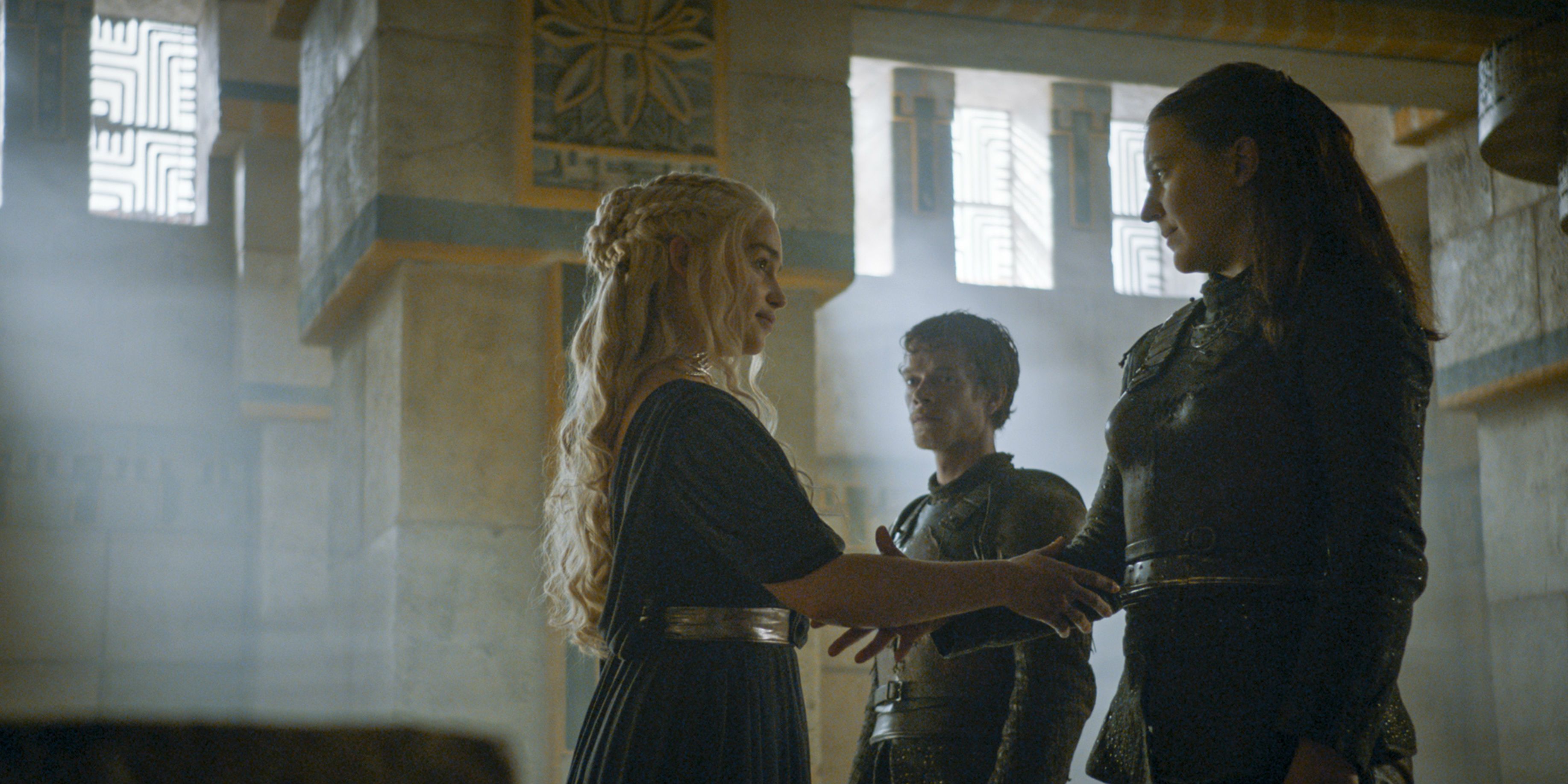[This post contains SPOILERS for Game of Thrones’s season six.]
-
The War of the Five Kings dominated the first four seasons of Game of Thrones with the moving of its troops and the fighting of its battles, and it continued to be heavily felt across seasons five and six, with its ongoing ramifications (and lingering deaths, in the case of Kings Balon Greyjoy and Tommen Baratheon).
But now, for the final two seasons of the show, we have entered into a new, potentially more desperate, and almost-definitely nastier conflict. Call it the War of the Three Monarchs.
Who are the major players? What are the coalitions that have already started to form around – or against – them? And how will the all-but-arrived White Walkers play into it?
Here is Game of Thrones’s War of the Three Monarchs Explained.
Queen Cersei Lannister, the First of Her Name
For the first time in the Seven Kingdoms of Westeros’s 300-year history, it has a queen.
Queen Cersei Lannister, the First of Her Name, has technically been either queen or queen regent for some two decades already, but she hasn’t been able to officially sit on the Iron Throne until just now, after her husband, King Robert, and her two sons, Joffrey and Tommen, have all died (the first being at her own hand, the second being an assassination, and the third being suicide – born of her own actions).
Despite the longevity of her presence at court, however, the number of challenges facing her are legion – and seem all but certain to make her reign a short one. First, there are the myriad psychological quirks which have made her extremely adept at playing the game of thrones but which make her an extremely substandard ruler – having been marginalized her whole life due to her gender, being raffled out in marriage and forced to endure the constant humiliations of her regal husband, Cersei has never been afforded the platform before to be a ruler in her own right. Compounding this is the adamant belief that she is the true offspring of her lord father, Tywin Lannister, one of the most legendary players of the game in recent history; she is adept at reading people, at divining their next moves before they even know what they are, at being able to out-play, outwit, and out-last all around her.
The problem with this most sincere conviction, of course, is that she’s dead wrong. Over the course of her time as queen regent, she’s managed to make things demonstrably worse not only for the citizens of King’s Landing, but also for all of the Seven Kingdoms, as well; her allowing the Faith Militant to reform and rearm is a perfect example of this, a move which weakens the authority and agency both of the throne and which therefore increases the destabilization that has been so thoroughly afflicting the realm since the start of the War of the Five Kings (which, incidentally, she had no small hand in starting).
Her shortsightedness, paranoia, and absolute disregard for anyone other than a Lannister – particularly if one is part of the stinking, filthy masses of the smallfolk – is now even greater than it was previously, thanks to the removal of the only element that grounded or otherwise humanized her: her children. With nothing left worth fighting for, all Cersei has left is exercising her will for the sake of doing it – one of the worst traits of any leader in any point in time, and arguably the most important reason for Mad King Aerys Targaryen’s disastrous rule (for more on that, check out our complete guide to Game of Thrones’s history).
Furthermore, the method by which she came to power – killing all who opposed her, from the members of King Tommen’s small council (goodbye, Grand Maester Pycelle and Mace Tyrell) to the leadership of the Faith (so long, High Sparrow) to several hundred innocents who just so happened to be in the wrong place at the wrong time – not only leaves her at the disadvantage of having no Hand of the King and, essentially, no small council whatsoever, it also will undoubtedly sour the public on her, particularly those of the Faith. It would seem that fear of her murderous actions has forced them to accept the reality of a female ruler for the time being, but such a fact does not make for a solid foundation of governing – just ask Aerys how his reign turned out.
Jon Stark, the King in the North
Jon Snow – who will undoubtedly be referred to by his subjects as “Jon Stark,” given their unlikelihood of following a bastard (even the vile Ramsay Snow got promoted to full Bolton status before he managed to swindle the title of Warden of the North for himself) – may have a significantly more stable base to work from (he is a battle-tested leader who isn’t afraid to put his life on the line for whatever cause he believes in – just ask Lady Melisandre, who’s had to bring him back from the dead once before already), but he still has a significant amount of headwind working against him.
For starters, the kingdom of the north is all but devastated at this point in the post-war period, having lost significant numbers of its populace in King Robb Stark’s campaign for independence in the War of the Five Kings and having lost a great deal of face when the ironborn took advantage of the region’s distraction with the war to occupy a decent swath of its territory. A number of the greater houses from the area have been hollowed out, at the least, or completely burnt, at the most, by their allegiances to the Starks, and then again by switching horses midstream to deal with the new, self-appointed Wardens of the North, House Bolton. Fatigue, weariness with war, and the official onslaught of winter all combine for a deadly combination.
And this is before one factors into the equation Jon’s tenure as lord commander of the Night’s Watch, wherein he altered the organization’s eight-thousand-year-old mandate to include the hated wildlings under the Watch’s protection instead of continuing to persecute and execute them. It is a bitter pill for most northerners to swallow, given their victimization of the free folk’s near-constant raids and abductions of the women-folk across the millennia, and it’s made even worse by the new status quo in the region, which sees King Jon attempting to force the wildlings and the Westerosi to live (more or less) side-by-side.
Then there’s the third (apparent) element of this new arrangement, the inclusion of the Knights of the Vale in House Stark’s armed forces, headed by the regent of the Vale, Lord Petyr Baelish. Littlefinger has been a man of great ambition and ruthlessness both; it was he who pitted Houses Stark and Lannister against one another at the beginning of the War of the Five Kings, and it was he who helped to murder King Joffrey in order to ensure that the situation continued to spiral out of control – and, thus, increase the likelihood that he could become crowned king himself one day. He appeared none too happy to see this recent turn of events – Jon being proclaimed the White Wolf, the new King in the North – and he could very well prove to be the single biggest obstacle to the north’s second shot at independence.
But there’s one element hanging over the whole shaky situation that could very well prove to be the best binding agent Jon has working in his favor: the fact that not only are the White Walkers on their way, but also that most of the northerners are likely to believe it. When faced with extinction, allowing the wildlings to live as your neighbor or working side-by-side with the remote, haughty Knights of the Vale suddenly seems like an irrelevant issue. Rather than having his subjects be terrified of him, as is the case with Cersei in King’s Landing, he has fear working as a motivator for him. This alone can make all the difference.
Another potentially game-changing discrepancy between these two monarchs: Cersei actively sought – and killed for – becoming the supreme ruler of Westeros, while Jon, meanwhile, has never expected nor desired it, not even when his presumed half-brother, Robb, had the equally unexpected honor pushed on him five seasons earlier. Coupled with his bravery, decency, and unerring desire to follow that peculiar construct called morality, Queen Lannister and King Stark couldn’t be any more dissimilar.
(For more on Jon Snow’s chances of success – or, even, just his survival – please see our “Is Jon the Real Hero, or Will He Die [Again]?” in-depth feature.)
Daenerys Targaryen, the Mother of Dragons
Daenerys’s last name gives her both the best and the shakiest claim to the mantle of queen of Westeros: she is believed to be the last of the original royal bloodline, but the previous Targaryen monarch, Mad King Aerys, was overthrown for a valid reason. This makes predicting the responses of the various Westerosi houses difficult.
Luckily for Dany, she has a few factors weighing the scales in her favor. Unlike Cersei, whose supporters are motivated out of sheer terror, or Jon, whose kingdom is arguably the weakest it’s been in its entire 10,000-year history, the Mother of Dragons already features a relatively strong and robust support system, starting with her personal advisors: Tyrion Lannister, her Hand of the Queen, is one of the sharpest and most nimble minds playing the game of thrones (he was able to almost single-handedly deny Stannis Baratheon a victory during the Battle of the Blackwater – no small feat, given how the variables favored the attacker), and Lord Varys, who is not only the best at what he does, he also has been actively plotting a Targaryen restoration ever since the Baratheons wrested control of the Iron Throne roughly 20 years ago.
Then there’s the houses that support her. The Tyrells are all but wiped out, but they’re still the Warden of the South and command a great deal of bannermen and foot soldiers; the Sands, replacing the long-reigning Martells, want nothing more than to murder Cersei, just as they already have done to her daughter, the late Princess Myrcella; and the Greyjoys are currently a house divided, but the faction backing Dany still holds most of the Iron Fleet, providing the greatest nautical advantage to her.
Speaking of the military advantage, neither the Iron Throne nor the north can come anywhere near what the Targaryen alliance can field: countless scores of Unsullied, one of the most effective fighting forces in the entire known world, and the Dothraki, providing the best cavalry. When topped with dragons, those magical entities that essentially defeated all seven kingdoms – and their combined armies – by themselves 300 years ago, it’s hard to see how anyone could stand up to Queen Daenerys, let alone best her.
There is a wild card facing Team Targaryen, however, and it has nothing to do with military might or political support, and everything to do with the events currently transpiring beyond the Wall: given that Dany possesses the perfect weapon to take down the Night’s King and his undead horde, and given that she’s infinitely more prone to look at the big picture than, say, Cersei (particularly if the Walkers invade Westeros, giving her no choice but to do so), it’s easy to see how the whole might of her campaign shifts from King’s Landing to the north. Unfortunately for her (and the people of Westeros), it’s also easy to see how she might lose the support of the southernmost of her allies, and how King Jon may put aside any political differences but Cersei absolutely wouldn’t – rather, she’d do everything in her power to take advantage of the “distraction” and do as much damage to the Essosi invaders.
All of which isn’t to take the storytelling bent of the show’s creator, George R.R. Martin, into consideration: time and again throughout Game of Thrones’s narrative, it is the top dogs that ultimately falter and the unworthy that come out victorious. Just look at Robb Stark, the Young Wolf: after winning nearly every single military engagement, he ends up being murdered at his uncle’s wedding feast. It’s hard to get more illustrative – or dispirited – than that.
-
Who is bound to win the War of the Three Monarchs? Or will they all perish, as did all the contenders in the War of the Five Kings? Share your predictions with the world in the comments.
Game of Thrones returns for season 7 in 2017 on HBO.

